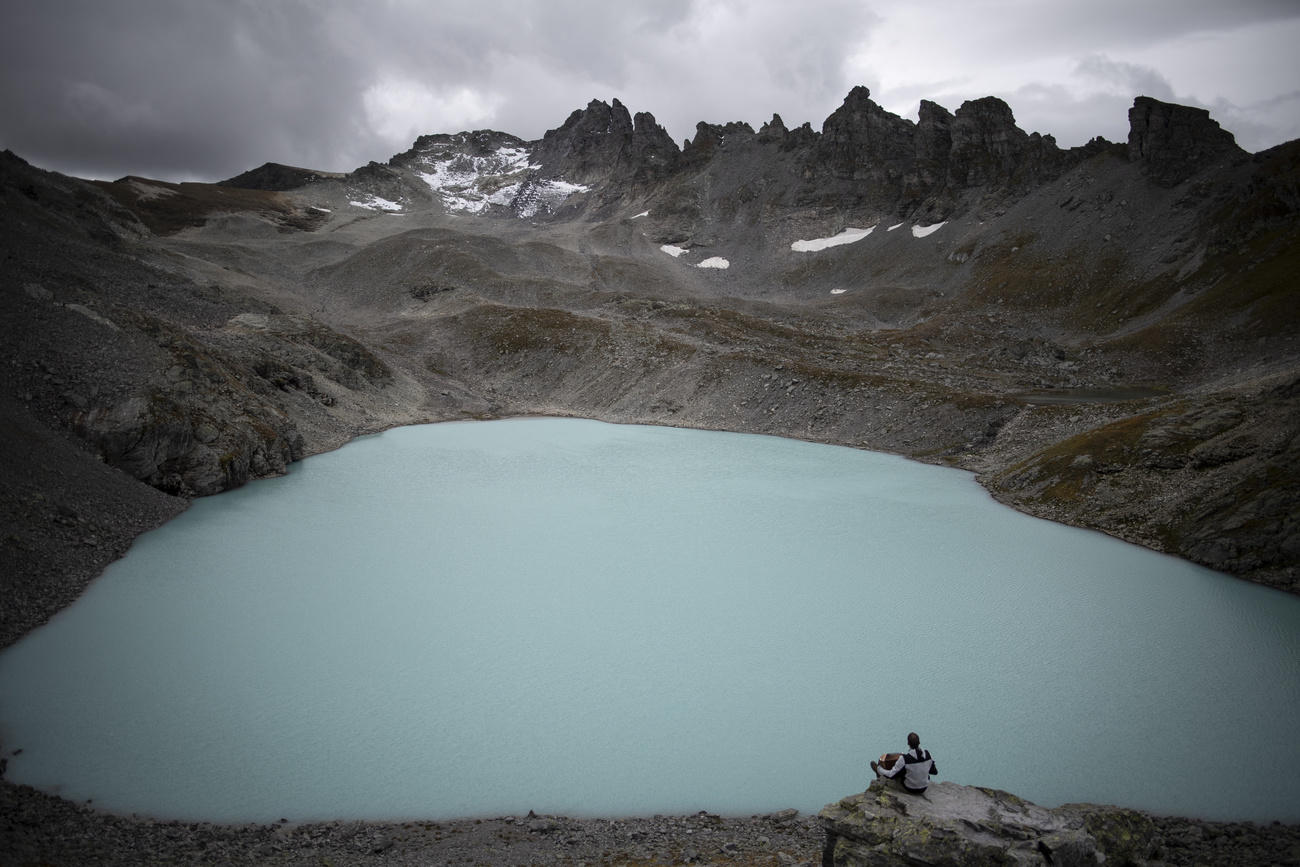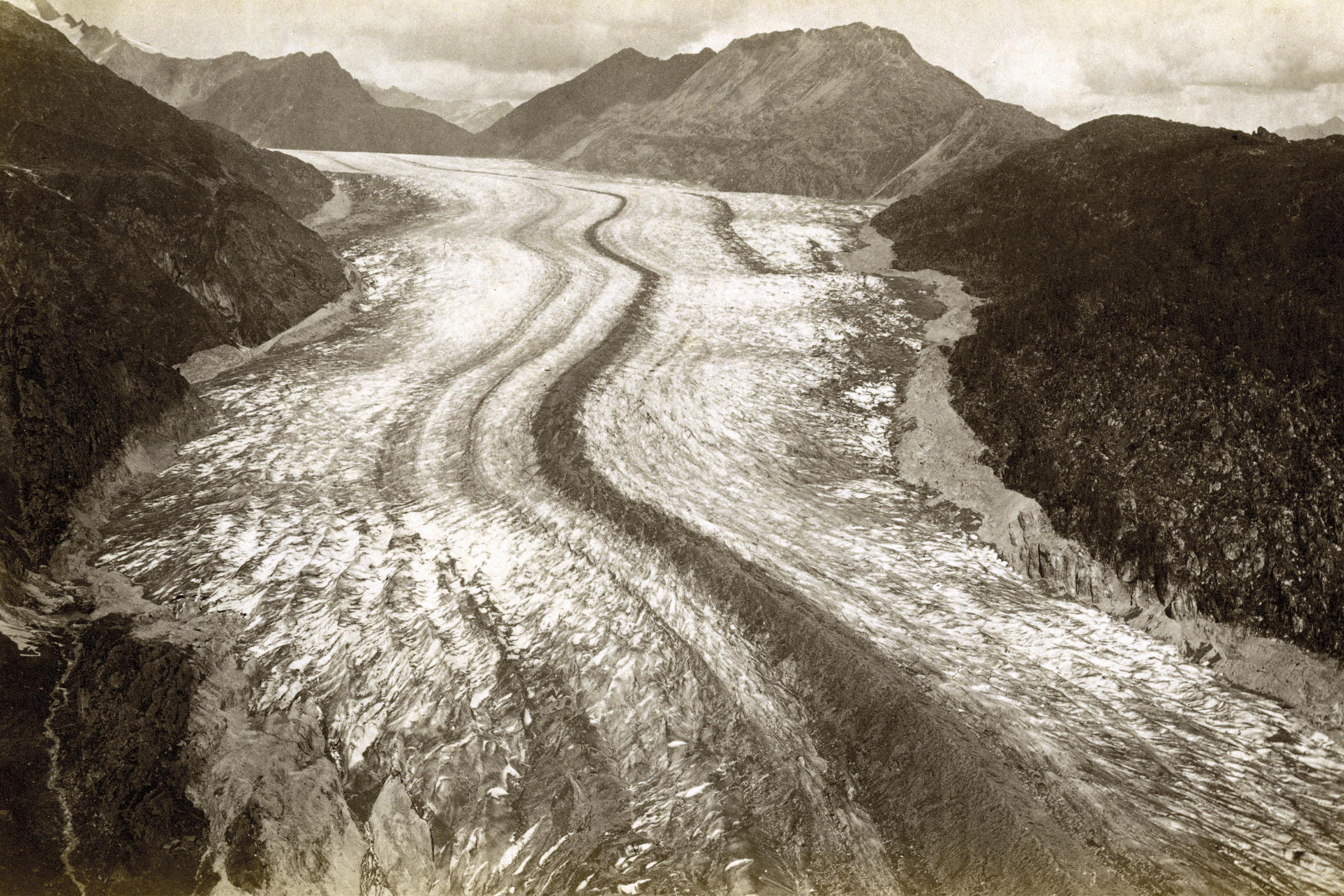
Swiss glaciers shrink by 10% in five years

Glacier melt rates reached record levels during the summer heatwaves of 2019. This led to another year of major losses of ice volume, according to the cryospheric commission of the Swiss Academy of Sciences. Switzerland’s glaciers have thus shrunk by 10% over the past five years.
“In 2019, once again, glacier ablation (through melting) outpaced accumulation (through snowfall), as indicated by measurements of the mass balance of 20 Swiss glaciers,” the academy said in a statementExternal link on Tuesday.
The situation was, however, less dramatic than in the previous two years.
In April and May, snow cover on the glaciers was 20-40% higher than usual. But during the two weeklong periods of intense heat at the end of June and the end of July, the volume of snow and ice melting on Swiss glaciers within just 15 days was equivalent to the country’s total annual consumption of drinking water.
As a result, the thick snow layer rapidly disappeared, and the strong melt persisted until the beginning of September.
“This means that, over the past 12 months, around 2% of Switzerland’s total glacier volume has been lost. Altogether, over the past five years, the loss exceeds 10% – a rate of decline never previously observed in the time series extending back for more than a century.”
The retreat of small glaciers continues unabated, the researchers said. More than 500 generally unnamed glaciers have already disappeared since around 1900. They noted that 2019 saw the removal of the Pizol glacier from the monitoring network.

More
Glaciers in the Alps – before and after

In compliance with the JTI standards
More: SWI swissinfo.ch certified by the Journalism Trust Initiative




























You can find an overview of ongoing debates with our journalists here . Please join us!
If you want to start a conversation about a topic raised in this article or want to report factual errors, email us at english@swissinfo.ch.